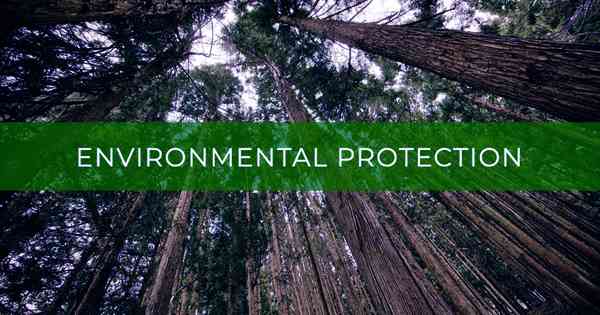Environmental protection is one of the basic prerequisites for the overall development of any country in the world. If economic growth and development are established and there is no country in the world that does not want to do so, then biodiversity must contribute. As the awareness of environmental protection develops, so does the awareness of the need to protect the environment by preventing adverse effects on nature. Law, as a scientific discipline, plays an important role in these efforts.
There are many dimensions to the relevance of economics for environmental policy assessment. Some are related to the basis of environmental decision-making, such as the use of cost-benefit analysis and determining how much to control, while the use of market-based instruments to achieve environmental
goals. First, there is the economic value of environmental resources, facilities, and quality. Second, while markets are useful in providing goods and services to society in general, there are serious market shortcomings (some of which are
identified as market failures) that justify government intervention in protecting the environment. Third, in the appropriate context, the economy can contribute to the evaluation and prioritization of alternative policies for the development of the environment, both within the given areas of concern (e.g. reduction of air
pollution from various sources) and various areas of concern (e.g. air pollution, water pollution, and hazardous waste). Fourth, economics, through the application of cost-benefit analysis, provide alternative policy arguments to determine whether an environmental problem should be controlled or solved. To this end, market-based materials are gradually being promoted as complementary and sometimes as an alternative to traditional theoretical regulatory approaches.
In general, the trend of market-based decision-making and control represents a far cry from some of the values inherent in the congressional mandate enshrined in many of the nation’s environmental regulations. Economics and law illustrate this by competing politically for dominance in setting environmental policy.
Economic analysis in contemporary environmental law and policy provides an influential theoretical framework for thinking and reasoning about environmental protection. Broadly speaking, this framework involves the assessment of specific
environmental resources with respect to their success in satisfying the personal preferences of the people taking market choices with the goal of producing economically efficient policies and environmental protection assessments. Such legislation is required for different laws and executive orders, and proponents of both weak and strong environmental protection often draw such analyzes in order to influence public debate in a way that supports their favorable views on policy decisions. Economics analysis is not the only type of assessment employed by policy practitioners, the significant legal and political impact of economic analysis on environmental protection inspires many of the book’s efforts to advance various frameworks for environmental protection assessment and fairness. Social justice is the ideological criterion based on the framework that this book promotes. The idea that public policy should be driven by concerns for social justice rather than economic efficiency is raised in a variety of legal and political arguments about the distributive effects of environmental protection. For example, a law setting national standards for air quality would require the
polluting industry to invest a certain amount of money in pollution control and it would benefit citizens who could otherwise breathe in polluted air. The impact of pollution control, however, is more complex than this, as there will be significant
differences in the quality of air quality beneficiaries will experience. For example, the application of environmental protection laws will vary depending on the racial composition of the community in which the environmental protection law has
been violated. Similarly, the standard of pollution control given in certain geographical locations will often be violated. The given standard will provide less absolute benefits for people who do or cannot avoid bad deeds, such as people who work or practice outside. If medical illnesses such as asthma or other
respiratory illnesses occur in contact with air pollution, people who cannot be treated will receive less overall benefits from an established level of air quality.















